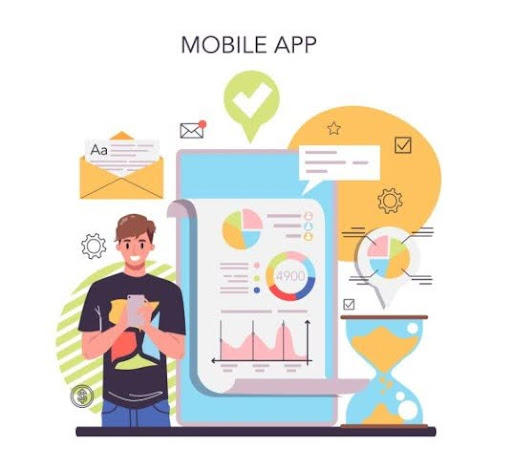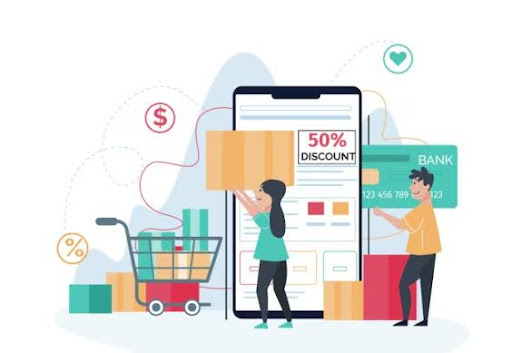The Role of Mobile Apps in Enhancing Your Business in 2024
In the rapidly evolving digital landscape of 2024, the role of mobile apps in business is becoming increasingly significant. With more consumers relying on their smartphones for everyday tasks, businesses are recognizing the crucial need for a well-developed mobile app. Understanding why businesses need mobile apps is essential as mobile app development for businesses takes center stage in strategic planning. Whether you're considering a mobile app for business or looking to enhance your existing digital strategy, this comprehensive guide will explore how mobile apps can transform your business, particularly in retail, and why they are indispensable for business growth.
Why Businesses Need Mobile Apps

The modern consumer's reliance on mobile devices has made mobile apps a vital tool for businesses. Here’s why mobile apps for business are crucial for thriving in today’s competitive environment:
Enhanced Customer Engagement
Mobile apps provide a direct and personalized communication channel with customers, which is a significant advantage over traditional websites. Unlike websites, apps can deliver tailored content and notifications based on user behavior and preferences. This level of personalization fosters deeper customer relationships and increases engagement. For instance, mobile apps for retail business enable companies to send targeted promotions, loyalty rewards, and personalized recommendations, enhancing the shopping experience and driving customer loyalty. Features like push notifications keep your brand top-of-mind, prompting users to engage more frequently with your business.
Improved Customer Experience
A well-designed mobile app for business can significantly enhance the customer experience. Mobile apps offer a seamless and intuitive interface that is often more user-friendly than traditional websites. Features such as one-click purchasing, easy navigation, and instant access to account information contribute to a smoother and more satisfying user experience. By investing in a mobile app for business, companies ensure that their customers have a convenient and efficient way to interact with their brand, leading to higher customer satisfaction and retention rates.
Increased Brand Visibility and Recognition
Mobile apps increase brand visibility by placing your business directly on customers’ home screens. Regular interactions with the app, such as checking notifications or using its features, keep your brand top-of-mind. This constant presence helps in building brand recognition and loyalty. For instance, mobile apps for owners of retail businesses can feature branded interfaces and custom functionalities that reinforce the brand's identity and value proposition. This enhanced visibility ensures that your business remains a prominent choice for customers, even amidst numerous options.
Enhanced Customer Insights
Mobile apps provide valuable data on user behavior, preferences, and interactions. This data can be leveraged to gain insights into customer needs and preferences, allowing businesses to make informed, data-driven decisions. Mobile app development for businesses often includes integrating analytics tools that track user engagement, app performance, and conversion rates. By analyzing this data, businesses can optimize their app functionalities and marketing strategies to better meet customer expectations and improve overall effectiveness.
Streamlined Operations
Mobile apps for businesses can streamline various operations by automating tasks and improving internal processes. For example, a mobile app can facilitate inventory management, order processing, and customer support. Mobile apps for retail businesses can integrate with existing systems to manage inventory, track sales, and process transactions more efficiently. This operational efficiency leads to cost savings, reduced errors, and improved productivity, enabling businesses to focus on growth and innovation.
Enhanced Customer Support
Mobile apps offer a platform for providing real-time customer support. Features such as in-app chat, support tickets, and FAQs can help resolve customer issues quickly and effectively. By incorporating customer support functionalities into a mobile app for business, businesses can enhance their service levels and improve customer satisfaction. Mobile apps for owners of various businesses can include chatbots and AI-powered support systems to handle customer inquiries around the clock, ensuring timely assistance and fostering a positive user experience.
Boosted Sales and Revenue
A well-designed mobile app to grow business can significantly enhance sales and revenue. By offering users a seamless and convenient purchasing experience, mobile apps for businesses create avenues for increased sales. Features like in-app purchases, exclusive deals, and personalized promotions drive conversions and boost revenue streams. For retail businesses, incorporating mobile commerce functionalities into the app can elevate the shopping experience, spur impulse purchases, and ultimately lead to higher sales figures.
The Role of Mobile Apps in Retail Business

The impact of mobile apps on the retail sector is profound, offering numerous benefits that enhance customer interactions and operational efficiency. Here’s how mobile apps for retail business are transforming the industry in 2024:
Personalized Shopping Experience
Mobile apps for retail business enable retailers to offer a highly personalized shopping experience. Through features such as personalized recommendations, wish lists, and tailored promotions, retailers can cater to individual customer preferences and enhance the shopping journey. By analyzing customer data, mobile apps can suggest products that align with users’ interests and previous purchases, increasing the likelihood of conversions and improving customer satisfaction.
Loyalty Programs and Rewards
Mobile apps are ideal platforms for implementing and managing loyalty programs. Retailers can use apps to offer rewards, discounts, and incentives to loyal customers. Features such as digital loyalty cards and reward tracking encourage repeat purchases and foster customer loyalty. Mobile apps for owners of retail businesses also provide a convenient way for customers to redeem rewards, track their progress, and stay engaged with the brand, ultimately enhancing customer retention.
Efficient Inventory Management
Retailers can leverage mobile apps to streamline inventory management processes. Apps can integrate with inventory systems to provide real-time updates on stock levels, manage orders, and track product availability. This integration helps retailers maintain optimal inventory levels, reduce stockouts, and improve overall supply chain management. Efficient inventory management through mobile apps for retail business results in cost savings and ensures that customers have access to desired products.
In-Store Enhancements
Mobile apps can elevate the in-store experience by incorporating features like store locators, in-app coupons, and mobile payment options. Retailers can leverage these mobile apps to inform customers about promotions, store events, and product availability, facilitating a seamless shopping experience both online and offline. By using a mobile app to grow business with integrated in-store functionalities, retailers can boost foot traffic, drive sales, and improve customer satisfaction.
Enhanced Customer Engagement
Mobile apps offer various engagement features, such as push notifications, in-app messaging, and personalized offers. Retailers can use these features to keep customers informed about new products, sales, and special promotions. Engaging customers through targeted notifications and offers helps drive traffic to the store and encourages repeat purchases. Mobile apps for retail business play a crucial role in maintaining ongoing communication with customers and fostering long-term relationships.
Conclusion
In 2024, mobile app development for businesses is more critical than ever as companies seek to enhance customer engagement, streamline operations, and drive growth. Whether you’re a retail business aiming to provide a personalized shopping experience or any other type of business looking to improve customer interactions and operational efficiency, investing in a mobile app for business is a strategic move with significant benefits.
Mobile apps for business are not merely about keeping up with technological trends; they are about leveraging technology to create meaningful connections with customers, optimize business processes, and ultimately drive success. By understanding the role of mobile apps in enhancing your business and exploring how they can be tailored to your specific needs, you can position your company for growth and competitive advantage in the ever-evolving digital landscape. The future of business is mobile, and embracing this trend will ensure that your business remains at the forefront of innovation and customer satisfaction.
